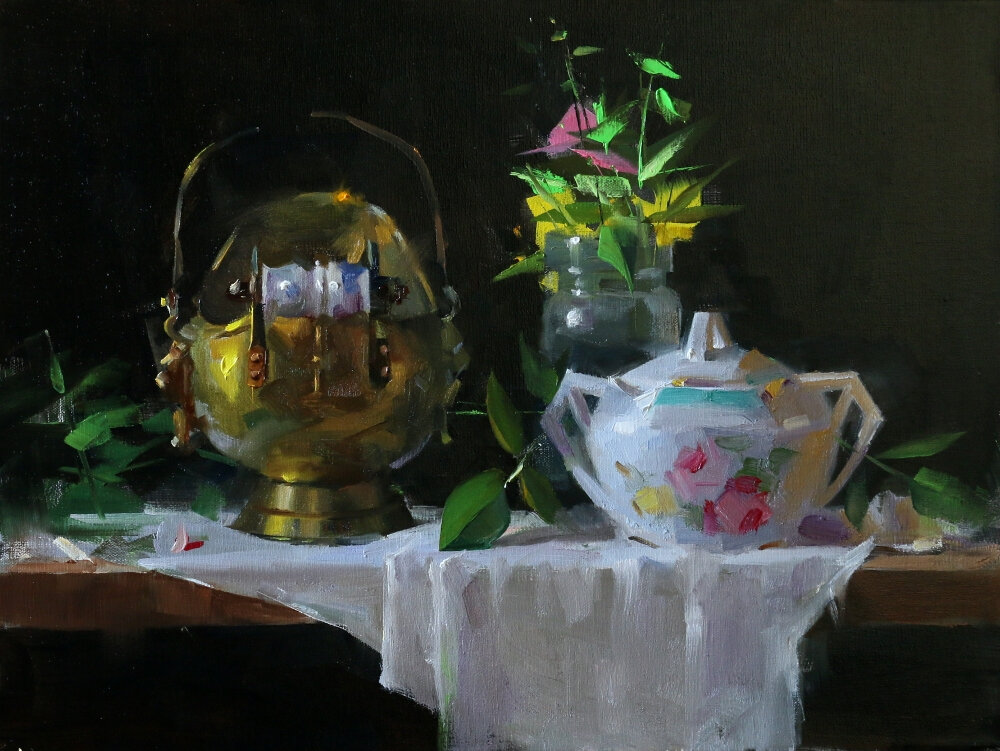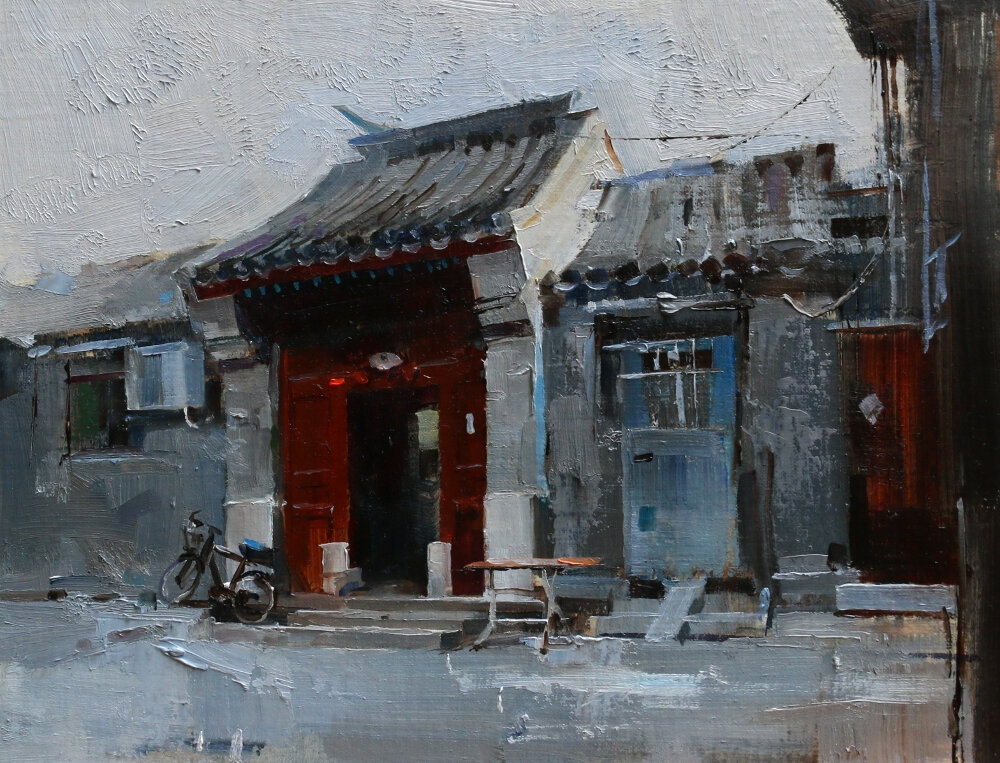Spotlight Interview with Qiang Huang, Award Winning Still Life & Landscape Artist
Today we sit down with Qiang Huang, an award winning still life, landscape, and impressionist artist living in Austin, Texas.
Qiang Huang is teaching a 3-day workshop at Workshop SLC on June 25, 2021 so we decided to sit down with him for a conversation about how he got into art, some of his favorite pieces, and why he chooses to teach classes and workshops around the world.
Our interview with him is below and you can sign up for his workshop here.
Qiang, thanks for sitting down with us!
Thank you for having me, I’m looking forward to coming to Salt Lake City next month.
So you were born in Beijing, China and we hear you were fascinated from an early age by art. Was this due to your uncle Hong-En Huang, who was a professional painter and educator himself?
Yes, my uncle was a high school art teacher. He introduced me to oil painting. For many years, he came to Beijing during his summer breaks. I accompanied him for a few plein air painting trips.
During those trips I got my first impression what plein air painting was.
You began teaching art in 2008, and I’ve read you first learned to paint through trial and error. Can you talk about how you came to learn art yourself?
I started oil painting around the year 2000. Since I did not have any formal art training, I took quite a few painting workshops, and did a lot of practice.
You chose to study science and technology and received your Ph.D. in physics. Does your background in a non-artistic field influence your painting?
Many people think art and science are fields which are totally unrelated and far apart. However I feel differently. I think they are quite relevant.
When I was in school, my field was physics specialized in optics. So I researched the physical properties of light. I have been trained to be sensitive about light spectra and how to mathematically organize the light properties and predict the light performance in different circumstances.
After I started painting, my sensitivity about light distribution really helped me to observe the subtleties of light in nature. So science and art have been merged cohesively.
You’ve spoken before about your appreciation for a balance between realistic and abstract art. Will you talk about that balance?
Impressionistic art is the early stage of the abstraction. Realistic or representational art emphasizes to elaborate and dramatize the beauty in nature around us and demonstrate the potential of human’s capability to mimic nature.
However abstract art presents our ability of designing and composing with color and geometry. These two parts of the art are organically inseparable. So the best way to create a good painting is to balance both approaches.
Will you talk about a favorite piece you’ve painted?
At this moment, I have not achieved my favorite piece. My art journey is a learning process. I did many paintings. Every one of them helped me to understand more. Just like assembling a giant puzzle, every painting I did was a puzzle piece.
I have got quite a few pieces and I put them in the right places, but I have not obtained all the pieces yet, but I am getting closer.
What advice would you have given yourself as an early hobbyist when you were wanting to take your work to the next level?
Enjoy the moment, and the next level will come naturally.
Can you talk about your approach as an instructor? How do you approach teaching art, versus being the one creating?
Teaching is communication. Instructors need to be organized and informative.
Do not tell your students your process is “intuitive”. Students’ progress is the measure of the instructors’ teaching quality.
Will you describe your studio and how you stay creative? Do you push yourself to paint daily, for example? Or wait for creativity to strike?
My studio is the living room of my house. So art is part of my life. I do not create, but I discover.
I did daily practice for a while, especially in the beginning stage, but I did not force it. Art is fun, please enjoy it. Creativity does not come from you or I, it comes from this universe.
Qiang Huang, thank you so much for your time today. We can’t wait for your upcoming workshop and for the many we hope to have in the future with you!













